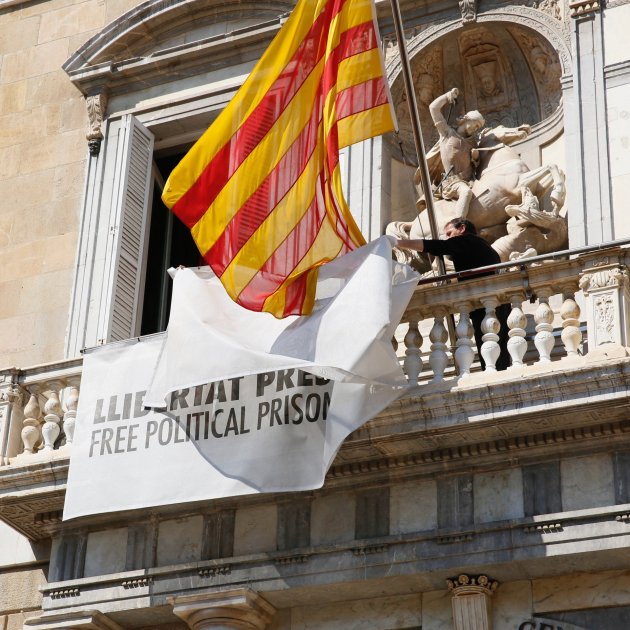On the threshold of a new general election in Spain, the second in a year, many of the issues from the first in April are again raising their heads. Today, for example, the High Court of Justice of Catalonia has given president Quim Torra 48 hours to remove the banner calling for the release of the imprisoned pro-independence leaders from outside the Catalan government palace. The president has already announced that he will appeal.
The statement, approved by three of the four judges on the panel, comes the same day that colleagues of theirs from the same court have announced the president's trial following the controversy earlier this year will now be delayed to 18th November, after the likely election. The original choice of date had sparked its own controversy, falling the same date as the scheduled general policy debate in the Catalan Parliament when the president would be expected to present his government's programme for the coming year.
The controversy earlier this year came after the Central Electoral Commission ordered Torra to remove a banner showing support for the Catalan political prisoners from outside the Catalan government palace for the duration of the election campaign. The president initially refused to do so, arguing it fell within his freedom of expression, starting off a week of back and forth between the government, the Commission and the courts. Torra eventually agreed to remove the banner and the yellow ribbons, replacing them once the election period was over. If convicted of disobedience in the case, prosecutors are calling for him to be banned from holding public office for twenty months and fined €30,000 (£27,000; $33,000).
Today's decision is unrelated to the Electoral Commission. It's a precautionary measure in response to a lawsuit presented by the association Impulso Ciudadano, headed by former Cs delegate José Domingo, which defines itself as a "civil movement with the aim of promoting and defending Spain's political, ideological, linguistic and cultural pluralism".
